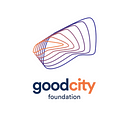HONG KONG: Good Economics for Hard Times (1) — How to Communicate the Realistic Socio-Economic Outcomes and Reasoning in Industry 4.0?
The phrase “Good Economics for Hard Times” comes from the title of the book: “Good Economics for Hard Times: Better Answers to Our Biggest Problems” by Abhijit V. Banerjee and Esther Duflo, both professors of economics at MIT in 2019, both the 2019 Nobel Prize Laureate in Economic Sciences, whom they were also well-known for explaining the generalised long-term causes of intergenerational poverty, in the understanding of education, entrepreneurship, public health, family and a few other factors.
The book “Good Economics for Hard Times” has brought a key question to the core of today’s society and markets — why aren’t economists trusted by the public? — the role of economists (public or private sectors) is usually perceived by the public to be forecasting the economic future, which is usually “too late” or “opposite to the viewpoints of the general public”. Economists were blamed enough for failing to forecast how the future socio-economic outlooks. To think on the other hand, maybe it is the fact that economists are not here for “forecasting”? Is it the communications and transparency on economists’ methodologies that have gone wrong? Is it that we shall seek more proper economic reasoning and explanations without over-complicated equations where all walks of life understand?
“the only function of economist forecasting is to make astrology look respectable.” — John Kenneth Galbraith.
The human desire to know about the future triumphs no matter how much we are unfaithful of what economists might have said. Perhaps, to put our desire to grabbing hold of our future in a better shoes, we hope to master the way the economists reason their socio-economic outlooks.
The essence of “reasoning of explanations” should be more concerned, instead of the “value of forecasting”. The process of public policy deliberation encourages all stakeholders from different social backgrounds and ideologies gather and share their behavioral preferences and priorities in daily living.
This is especially crucial in the practices of socio-economic development, where the executions, implementations and evaluations become technically harder as the lens zooms in from the macro (regional and national) to micro (small and medium sized city and district).
While the Good City Foundation has been working with global platforms such as the World Economic Forum and UNDP for various macroscopic studies, usually from the bird-view, and completed development projects and roadmaps for city-level transformation with socio-economic impact, it takes more fixes to the assessment variables in the global framework of future cities so as to give a more localised reasoning to theory of change in district-level.
Hong Kong — In this regards, the gap to bridge the localised reasoning so as to establish an addressable and measurable theory of change in Hong Kong is planned to take place in the recent collaboration of Good City Foundation with the project host Social Enterprise Summit (charity Social Entrepreneurship Forum), in partnership with the Home Affairs Bureau Tai Po District Office, HK Science and Technology Parks (Re-Industrialisation), KPMG and social enterprises RE-LOOK and Time To Gold.
Community Program — Enlightening “Kwong Fuk Road”(“社創實驗室:革新大埔未來產業”) designated as a series of School Workshop, Community Explores and Social Entrepreneurship Lab in August and September 2022 to conduct an in-depth community engagement with various stakeholders in Tai Po District, a location as one of the key urban economy undergoing Re-Industrialisation process, where conventional industrial estates adopt Industry 4.0 technologies, integrating with the research and development (R&D) capability provided by the HK Science and Technology Parks (HKSTP) and unleashing the role of advanced manufacturing supply-chain hub for the Northern Metropolis and Greater Bay Area.
With the 1st batch of the Public Policy Research Interns (HKU and EduHK), Tai Po District is advised to be 5 urban clusters with distinguished socio-economic profiles, where 3 pillars are curated for deeper research and analysis in the 2nd batch:
- Industry Champion for the District
- Common Prosperity in the Process of Re-Industrialisation
- Shared Neighbourhood Values with Good Community Governance
The 2nd batch of Public Policy Research Interns has just been curated in the early June with 18 Undergraduate and Masters (with 1 PhD) from top-notch universities in Hong Kong and Asia (HKUST, CUHK, TsinghuaU, PKU, SYSU, GeorgeTown and others). 7 groups were divided to conduct an in-depth research and analysis with the data and official documents / district governance reports supported by the District Office in Tai Po.
Weekly expert sharing with mentors from World Economic Forum, HK Science and Technology Parks, Singapore University of Technology and Design (SUTD) and others would be conducted to empowering the local understanding and research imagination capability of the research interns.
SE Lab 2021 Hosted by Social Enterprise Summit with HKSTP
The first Community Program in Tai Po District on Re-Industrialisation was traced back to September 2021 in the partnership with the HKSTP as a preliminary consultation workshop to understand further the needs and expectations of such urban transformation and the social domains where the local stakeholders and policymakers care to receive and deliver respectively.
Full Policy Memo on SE Lab Tai Po in 2021: Read Here
